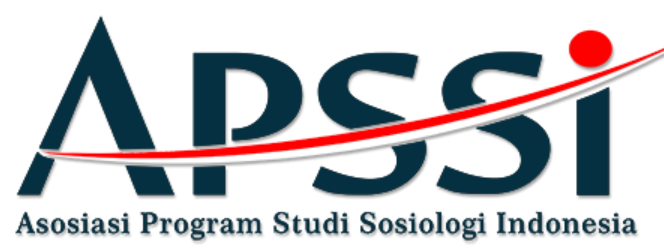Anti-Corruption Education as a Preventive Action for Corrupt Behavior
DOI:
https://doi.org/10.47776/MJPRS.002.01.01Keywords:
anti-corruption behavior, anti-corruption education, self-integrity, student centered learningAbstract
Corruption has already become a part of culture in the society. Corruption happens in both government and private sector; the most concerning thing is the involvement of the head of institutions which supposed to be a role model for young generation. There are a lot of things have been done to decrease our corruption cases from law perspective, unfortunately a preventive attempt from education perspective has not much been applied. Anti-corruption education is a preventive effort to build self-awareness and integrity against corruptive behavior. The research objective was to obtain an overview of whether anti-corruption education could develop students’ sensitivity and concern for corruption issues. The research method used is action research through collective self-reflection which is integrated with the student-centered learning approach carried out in groups and is achieved through reflective critical action of group members as individuals whose learning outcomes are measured. There were 25 university students from 7 faculties participated in this research. The findings showed that students were able to identify corrupt actions based on personal and group experiences. Participants were also able to identify the impact of time corrupt behavior on individuals and institutions. In the reflection stage, participants reveal the values of integrity such as honesty, responsibility and consistency between attitudes and behavior, as well as religious values which believed to be a fortress against corrupt actions. The action research is followed up by making an action plan to become a person with an integrity and in managing anti-corruption student organizations.
Downloads
References
Adisusanto dkk. 2013. Modul Kepemimpinan Berintegritas. Jakarta: Yayasan Bhumiksara
Antika, Reza Rindy. 2014. “Proses Pembelajaran Berbasis Student Centered Learning (Studi Deskriptif di Sekolah Menengah Pertama Islam Baitul ‘Izzah, Nganjuk)â€. BioKultur. 3 (1): 251-263. (http://journal.unair.ac.id/download-fullpapers-bk21a95d451ffull.pdf)
Bronfenbrenner, Urie. 2005. Making Human Beings Human: Bioecological Perspectives on Human Development (Introduction). Thousand Oaks: Sage Publications Inc.
Dua, M, Ujan, A.A., Gunawan, T.S., Ristyantoro, R. 2019. Etika Antikorupsi: Menjadi Professional Berintegritas. Jakarta: Direktorat Pendidikan dan Pelayanan Masyarakat KPK.
Endro, Gunardi. 2017. “Menyelisik Makna Integritas dan Pertentangannya dengan Korupsiâ€. Jurnal-INTEGRITAS. 3 (1): 131-152. (https://jurnal.kpk.go.id/index.php/integritas/article/view/159/41).
Gall, Meredith D., Gall, Joyce p., Borg, Walter R. 2007. Educationnal Research an Introduction. Boston New York Hongkong: Pearson Allyn And Bacon.
Harini. 2016. ICW dan EHEM (Niat dan Kesempatan untuk Korupsi Harus Dicegah Sedini Mungkin). Diakses 27 Maret 2021 (http://sesawi.xyz/2016/11/03/icw-dan-ehem-niat-dan-kesempatan-untuk-korupsi-harus-dicegah-sedini-mungkin-dimulai-dari-membangun-integritas-diri/#).
Hoidn, Sabine. 2017. Student-Centered Learning Environments in Higher Education Classrooms. New York: Palgrave Macmillan.
Kurniawan, M. Arif., Miftahillah, Agus., Nasihah, Nilna Milhatan. 2018. “Pembelajaran Berbasis Student-Centered Learning Di Perguruan Tinggi: Suatu Tinjauan di UIN Sunan Kalijaga Yogyakartaâ€. Lentera Pendidikan. 21 (1): 1-11. (http://journal.uin-alauddin.ac.id/index.php/lentera_pendidikan/article/view/1-11).
Kolb, D.A. 2015. Experiential Learning: Experience as the Source of Learning and Development 2nd Edition. Pearson Education Inc.
Nair, Prakash. 2014. Blueprint for Tomorrow: Redesigning Schools for Student-Centered Leaming. Cambridge, Massachusetts: Harvard Education Press.
Oktarina, Putu Santi. 2017. “Implementasi Metode Problem-Based Learning (PBL) Untuk Optimalisasi Student-Centered Learning (SCL) Di Perguruan Tinggiâ€. Jurnal Penjaminan Mutu. 3 (1): 76-86. (https://ejournal.ihdn.ac.id/index.php/JPM/article/view/94).
Priansa, Donni Juni. 2017. Pengembangan Strategi & Model Pembelajaran. Bandung: Pustaka Setia.
Santyasa, I Wayan., Warphala, I Wayan Sukra., Tegeh, I Made. 2015. “Validasi dan Implementasi Model-Model Student Centered Learning Untuk Meningkatkan Penalaran dan Karakter Siswa Sekolah Menengah Atasâ€. Jurnal Pendidikan Indonesia. 4 (1, April): 512-527. (https://ejournal.undiksha.ac.id/index.php/JPI/article/view/4890).
Suparman, Atwi. 2014. Desain Instruksional Modern:panduang Para Pengajar dan Inovator Pendidikan. Jakarta: Erlangga.
Saifulloh, Putra Perdana Ahmad. 2017. “Peran Perguruan Tinggi Dalam Menumbuhkan Budaya Anti Korupsi Di Indonesiaâ€. Jurnal Hukum & Pembangunan. 47 (4): 459-476. (http://jhp.ui.ac.id/index.php/home/article/view/1591).
Trianto. 2010. Mendesain Model Pembelajaran Inovatif-Progresif. Jakarta: Kencana.
Tudge, J. R. H., Mokrova, I., Hatfield, B. E. & Karnik, R. B. 2009. “Uses and Misuses of Bronfenbrenner’s Bioecological Theory of Human Development.†Journal of Family Theory & Review. 1(4): 198-210. (https://onlinelibrary.wiley.com/doi/abs/10.1111/j.1756-2589.2009.00026.x).
Widhiyaastuti, I.G.A.A.D., Ariawan, I.G.K. 2018. “Meningkatkan Kesadaran Generagi Muda untuk Berperilaku Anti Koruptif Melalui Pendidikan Anti Korupsiâ€. Jurnal Ilmiah Prodi Magister Kenotariatan Acta Comitas. 3(1): 17 – 25. (https://ojs.unud.ac.id/index.php/ActaComitas/article/view/39325).







